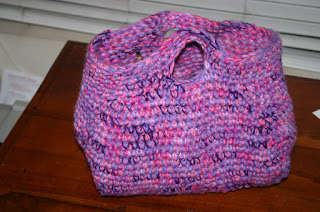"All of the words that we are going to receive from God, no matter what may accompany them externally or internally, will ultimately pass through the form of our own thoughts and perceptions. We must learn to find in them the voice of God in whom we live and move and have our being." - pg. 182
"It cannot be stressed too much that the permanent address at which the word of God may be found is the Bible." - pg. 183
"God acts toward me in a distinctively personal manner. This is the common testimony across wide ranges of Christian fellowship and history. I think it is this sense of being seized in the presence of Scripture, in a manner so widely shared, that gives the Bible its power to assure us in the face of our continuing fallibility. We stand within a community of the spoken to." (emphasis mine.) - pg. 184
"Without any real communication from God our view of the world is very impersonal, however glorious we may find God's creation. But there is all the difference in the world between having a fine general view that this is our Father's world - or even that an arrangement has been made for our eternal redemption - and having confidence, based in experience, that the Father's face, whether in the dark of the night or the brightness of the day, is turned toward us, shining upon us, and that the Father is speaking to us individually." - pg. 186
". . . God is not a mumbling trickster.
"On the contrary it is to be expected, given the revelation of God in Christ, that if he wants us to know something, he will be both able and willing to communicate with us plainly, just as long as we are open and prepared by our experience to hear and obey." - pg. 191
When seeking direction regarding a specific matter and direction doesn't come: "I do not cease my general attitude of listening. But I am neither disappointed nor alarmed, nor even concerned, as a rule . . . From my own experience, then, and from what I have been able to learn from the Scriptures and from others who live in a working relationship with God's voice, I am led to the following conclusion: Direction will always be made available to the mature disciple if without it serious harm would befall people concerned in the matter or the cause of Christ." - pg. 200
"Think of it this way: no decent parents would obscure their intentions for their children. A general principle for interpreting God's behavior towards us is provided in Jesus' words, 'If you then, who are evil, know how to give good gifts to your children, how much more will the heavenly Father give the Holy Spirit to those who ask him!' (Lk 11:12). How much more will our heavenly Father give clear instructions to those who sincerely ask him - in those cases where he has any to give? Where he has none to give, we may be sure that it is because it is best that he does not. Then whatever lies within his moral will and whatever is undertaken in faith is his perfect will. It is no less perfect because it was not specifically dictated by him. Indeed it is perhaps more perfect precisely because he saw no need for precise dictation. He expects and trusts us to choose, and he goes with us in our choice.
"Several different courses of action may, then, each be God's perfect will in a given circumstance. We should assume that this is so in all cases where we are walking in his general will, are experienced in hearing his voice and, on seeking, find no specific direction given. In these cases there are usually various things that would equally please God, though he directs none of them in particular to be done. All are perfectly in his will because none is better than the others so far as he is concerned, and all are good. he would not have you do other than you are doing. (Of course, being in his perfect will does not mean you are quite flawless yet! You can be in his perfect will without being a perfect human being!)" - pgs. 206-207
The above rings so true with my own experience as a parent; I love watching my children choose between goods. They become more themselves when they say, "This and not that," and in such cases, what I'm hoping is not that they choose one good or the other, but that they choose what is best for them, and I rejoice that they have more than one good to choose between. It makes so much sense - as our parenting, at its best, is only a pale reflection of the fatherhood of God - that He would rejoice in seeing us choose between goods too. It must be like watching a toddler, finally able to take more than ten steps in a row, wobble confidently towards his stuffed bear instead of his stuffed rabbit, grinning all the time at his accomplishment. You're just delighting in him, and are happy for him to grab either toy.
A quotation from John Wood Oman: "We can only be absolutely dependent upon God as we are absolutely independent in our own souls, and only absolutely independent in our own souls as we are absolutely dependent on God. A saved soul, in other words, is a soul true to itself because, with its mind on God's will of love and not on itself, it stands in God's world unbribable and undismayed, having freedom as it has piety and piety as it is free." - quoted on pg. 204






